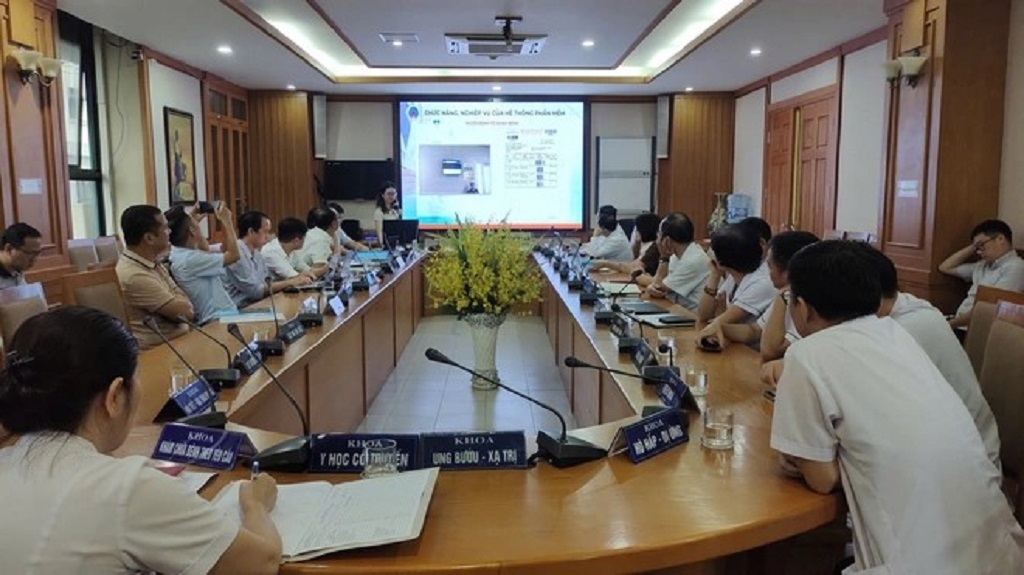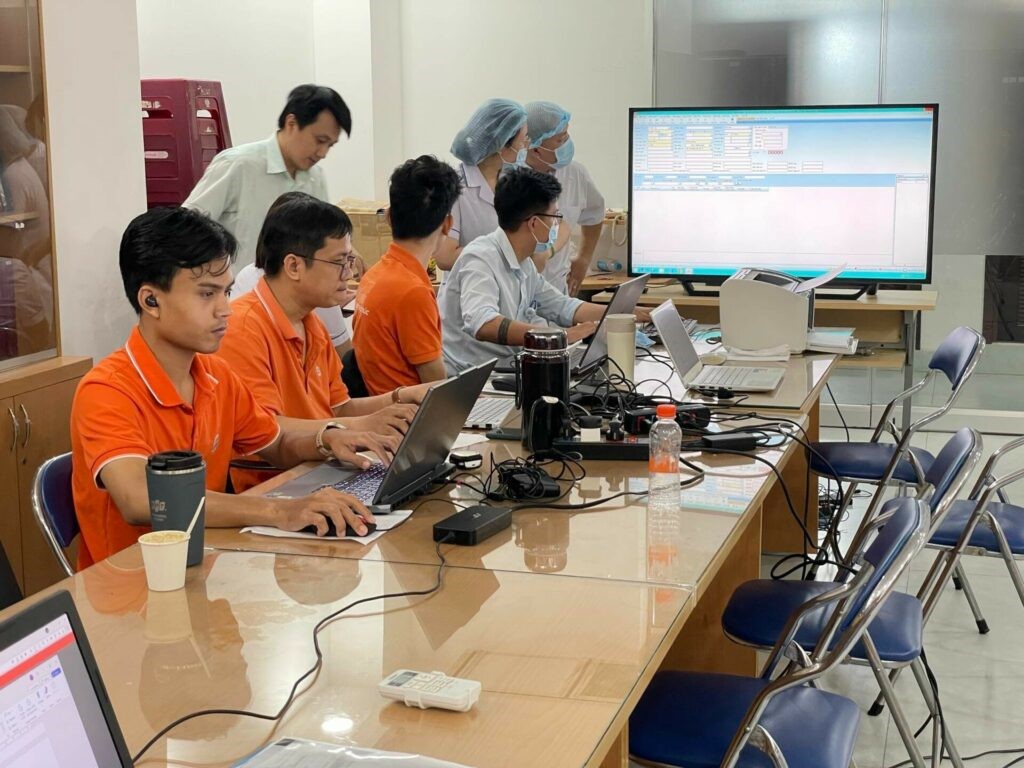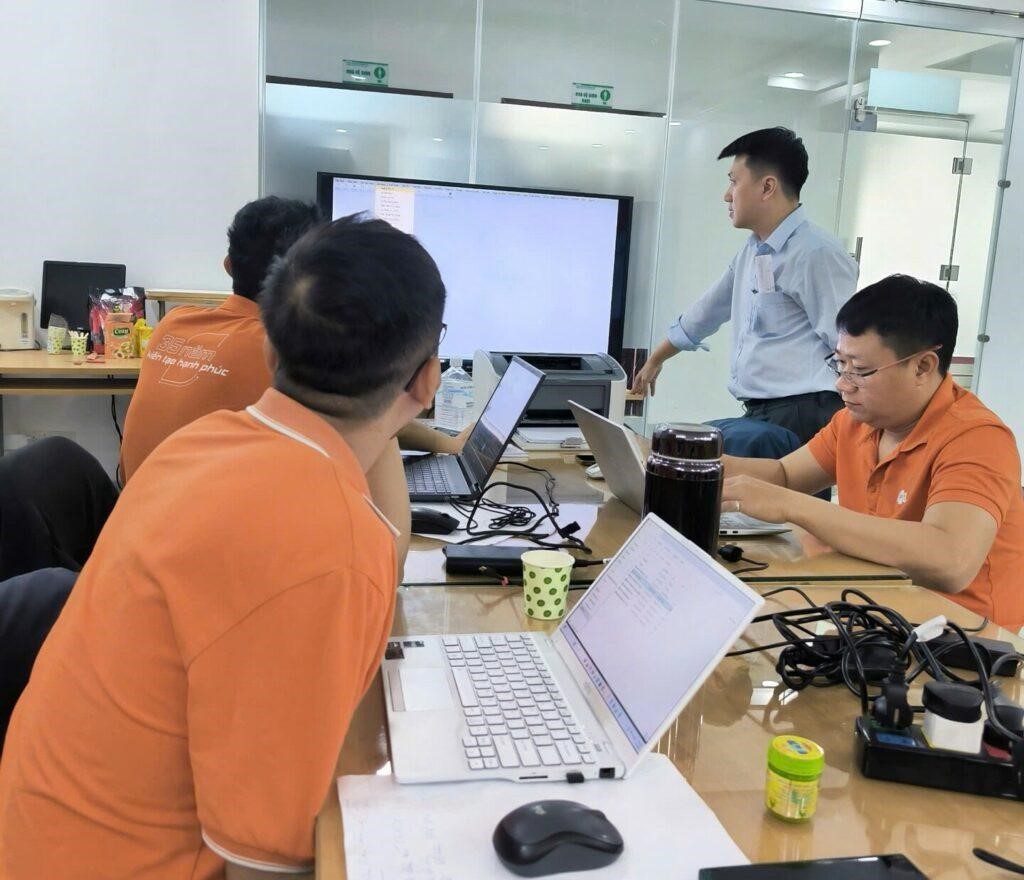FPT implements Electronic Medical Records for over 70 hospitals nationwide in 6 months
In March 2025, the Prime Minister issued Directive No. 07/CT-TTg, setting the goal that by September 30, 2025, all hospitals nationwide must implement an Electronic Medical Record (EMR) system. In response to this urgent mandate, FPT has partnered with more than 70 hospitals and medical facilities across the country to deploy its FPT.EMR solution – fully compliant with Circular 46 (former), Circular 13 of the Ministry of Health, and other relevant healthcare regulations.
Amid this context, FPT has been working alongside major hospitals such as Huu Nghi Hospital and Ho Chi Minh City Oncology Hospital to implement electronic medical records. These are large-scale institutions with high patient volumes, for instance, Ho Chi Minh City Oncology Hospital alone receives nearly 900,000 patient visits annually and performs around 40,000 surgeries, reflecting both the scale and complexity of the deployment.
To date, the implementation has achieved significant progress, with EMR systems now in operation at multiple hospitals. This marks an important shift from manual to digital patient record management, helping hospitals reduce administrative processing time, enhance operational efficiency, and lay the groundwork for the eventual elimination of paper-based medical records nationwide.
Huu Nghi Hospital held an acceptance ceremony for its EMR software system on September 19, 2025.
The implementation of electronic medical records has brought tangible improvements to medical examination and treatment, patient services, and hospital management efficiency. More than just a digital replacement for paper records, the EMR system serves as a data backbone for future high-tech healthcare applications, enabling data standardization and interoperability among hospitals.
Developed with a deep understanding of healthcare standards, regulatory frameworks, and operational workflows, FPT.EMR reflects FPT’s strong industry expertise. Once fully operational, the system delivers clear benefits. For hospitals, it connects all data streams, from administration, laboratory testing, and medical imaging to treatment, eliminating repetitive manual entries by physicians and reducing administrative workloads. Through direct integration with the Hospital Information System (HIS), information is updated quickly and accurately, significantly shortening patient intake and record-processing times while improving operational professionalism. Records are digitally signed via FPT.eSign, and data is securely stored on a 24/7 cloud-based platform, enabling centralized management and reducing infrastructure costs for hospitals.
For doctors, the solution provides access to patients’ complete medical histories, minimizing redundant tests, supporting more accurate diagnoses, and allowing more time for professional care. For patients, the healthcare experience becomes more convenient: administrative procedures are streamlined, medical information is integrated into the VNeID application, and test results, prescriptions, and medical histories are easily accessible. Patients also receive timely reminders for follow-up appointments, medication schedules, and referrals, ensuring continuous and proactive care.
FPT collaborates and works closely with physicians in implementing the EMR system
A prime example is the Ho Chi Minh City Ear, Nose and Throat Hospital, which has implemented a fully synchronized electronic medical record system covering emergency care, outpatient clinics, operating rooms, and inpatient wards. Physicians at the hospital also shared with FPT their experiences and outcomes from using the EMR system.
During implementation, FPT has encountered numerous challenges. Each healthcare facility varies in its level of readiness in terms of network infrastructure, equipment, physical conditions, and human resources. The transition from paper-based records to EMR requires substantial investment in infrastructure and significant time for staff training. Many hospitals face difficulties in recruiting and retaining personnel with the necessary expertise and technical skills, which has affected the pace of EMR deployment.
Furthermore, differences in operational procedures and management systems pose major challenges. Each hospital has its own processes for patient care and record management, leading to inconsistencies in meeting EMR implementation standards. FPT must therefore customize its software to suit each facility while still ensuring data standardization and interoperability across hospitals.
To overcome these challenges, FPT has continuously optimized its workforce to meet demanding project schedules and complex technical requirements. Coordination among internal departments and with hospitals requires flexibility, efficiency, and swift responsiveness. The extensive workload and the need for ongoing collaboration among multiple stakeholders have placed considerable pressure on the implementation process.
FPT’s project teams have been working tirelessly and continuously to ensure the timely implementation of the EMR system across hospitals
The ultimate goal of the Electronic Medical Record system is to completely eliminate paper-based records. However, achieving this requires the synchronization of multiple factors: software, network infrastructure, facilities, and most importantly, a suitable legal framework. Bringing all four elements together demands time, a clear roadmap, and close collaboration among all stakeholders, from technology providers and healthcare institutions to regulatory authorities. While this poses significant challenges, it also presents an opportunity to standardize and modernize the entire healthcare system.
FPT is committed to accompanying medical professionals and hospitals throughout the digital transformation journey of the healthcare sector. With extensive experience implementing EMR solutions at major healthcare institutions and strong technological capabilities, FPT aims to help hospitals not only digitalize their operations but also enhance service quality, contributing to more comprehensive and sustainable healthcare for the public.
At the same time, FPT affirms its commitment to working alongside the Government to realize the objectives set out in Resolution No. 57-NQ/TW, which includes the development of digital healthcare. By promoting the application of advanced technologies including EMR solutions, FPT aspires to help build a smart, modern, and patient-centered healthcare ecosystem in Vietnam.

















